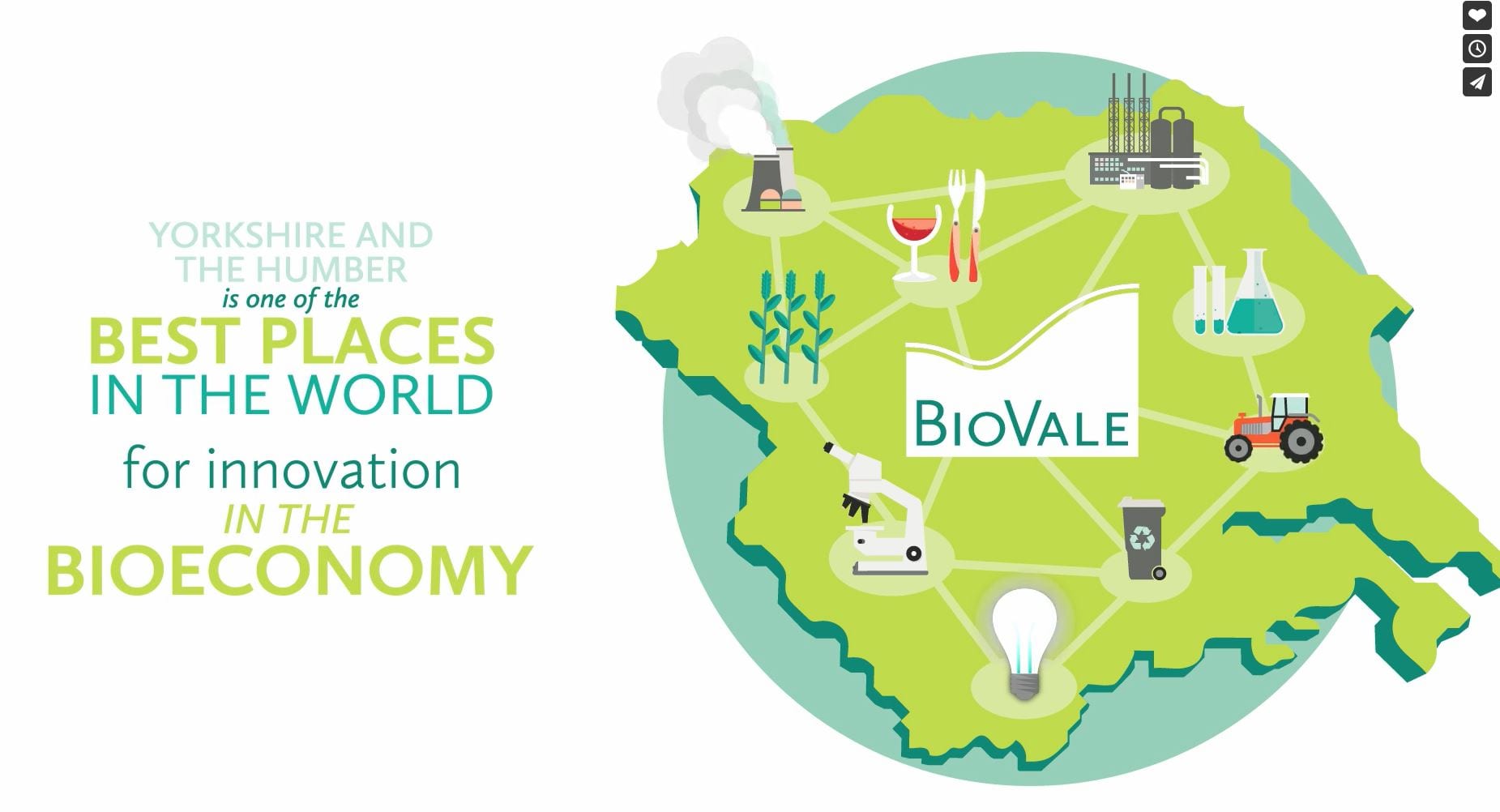Food is big business in Yorkshire and the Humber. In fact, food manufacturing makes up about 20% of our GVA. The industry is reliant on our rural landscape and agricultural industries which, in turn, inform our rich culture and contribute significantly to our tourism economy.
With this great industrial food engine comes great responsibility, yet globally about a third of food production is never eaten. Talk about waste. Some of it rots in our fridges but much is lost on the farm or at the food manufacturer. Imagine what we could do if, instead of waste and a trip to the shops, we saw opportunity? Instead of straight lines with virgin raw materials, consumption, land-fill and incinerators, we saw circles. A Circular Economy. An economy that makes use of the waste created at every moment of a product’s industrial manufacture, retail journey, household consumption and how we throw it away. Everything has a value to somebody. The question is how to unlock it.
Unlocking value
We may think we’re being future-thinking, but for centuries people have said (to paraphrase) “today’s waste is tomorrow’s raw material” (early industrial-scale soap production used ‘waste’ vegetable oils and animal fats). Despite this, we still live in a world full of waste.
Simultaneously, we live in a time of challenge and change. Agriculture faces disruption as we leave the EU, adapt to more extreme weather, live with biodiversity loss and soil degradation all while squeezing profit margins and productivity. If we want to feed everyone affordably, tackle the climate emergency and face water/resource challenges head-on, we must maximise the value we extract from our precious land and support the people who farm it.
Why Yorkshire?
If a circular economy approach to food production is to be embraced anywhere, it should be right here – in Yorkshire and the Humber. We live in a region with an outstanding combination of a thriving bio-based industry, world-class science and wonderfully diverse agriculture. These three things make us one of the best places in the world to ask the questions needed to build a circular economy. E.g. how can we avoid food waste? How can we make useful things from the food waste we can’t avoid? Or how can we replace fossil-fuels with renewable feedstocks, including household waste and even waste gases? Stop throwing plastics into the sea? Optimise agri-tech?
Key Yorkshire businesses are already leading the way. For example, Fera Science provides research and expertise to support farming and food businesses to be sustainable using the most up-to-date innovation. And Drax’s power station is switching from burning coal to biomass in Europe’s largest decarbonisation project. They are also investing in capturing biobased carbon dioxide with a spin-out company from Leeds University and going beyond to then convert that CO2 into animal feed with another UK start-up.
Firm foundations
And while it’s easy to focus on larger companies, our circular economy will be built from the grassroots up by small and micro businesses who make up the majority of our business. An example is Toast who brew award-winning craft beer from waste bread. You read that right. Ever wonder where sandwich shop crusts go? At best the answer used be ‘pigs’ but now it’s beer.
Not only do we have the agricultural and food manufacturing base, we have the knowledge and expertise. Our universities and private research centres lead the world in crop development, robotics and the industrial techniques needed to convert food waste (even that found in your home’s black bins) into chemicals, plastics and materials.
From waste to raw materials
At BioVale, we’re working with scientists, agriculturists, large enterprise, local government and innovative entrepreneurs to create the technologies and businesses best placed to either: re-design our agriculture and food production to operate without waste being created; or – if unavoidable – use food waste as a valued raw material.
BioVale’s Significant Interest Group in Anaerobic Digestion, regularly brings together scientific research, industry and farmers to swap best practice, share ambition and work to increase our region’s productivity. And our sister organisation – the Biorenewables Development Centre (BDC) at Dunnington – is an open-access, scale-up centre with the equipment and experts needed to make using food waste possible. The BDC has proven the concept of using pasta-cooking water to produce anti-fungal drugs; bread waste to produce antibiotics; and even ice-cream by-products to produce bioethanol.
Given this innovation and manufacturing, Yorkshire is excellently placed to become an internationally recognised hub for such a food-based circular economy. We can attract research partners, investors and entrepreneurs to work alongside our farmers and food manufacturers. And so drive jobs, clean growth and address the world’s major climate, food and resource challenges.
It won’t be easy, but we’ve the fundamental, intractable assets in place. And – most importantly – we’ve the ambition. BioVale is working with key stakeholders to build a circular bioeconomy and is keen to hear from anyone interested in helping to bend the linear food economy until it is circular.
Dr Sarah Hickingbottom is CEO of Biovale and also supports start-up entrepreneurs and international collaborations via Bio-based Industries Consortium (BIC), Bio-based Industries Joint Undertaking (BBI JU) and 3Bi.
BioVale is a non-profit company associated with the University of York. It aims to establish the Yorkshire region as a world-leading centre for bioeconomy innovation which focuses on renewable raw materials and low-carbon agriculture. In this way, it hopes to stimulate economic growth and support the UN sustainable development goals.
If you have any questions about becoming a member of CHAP, or would like to reach out to the CHAP team to discuss other project opportunities, please email us at enquiries@chap-solutions.co.uk
Please note, the opinions expressed in this article are the author’s own and do not necessarily reflect the views or opinions of CHAP.












